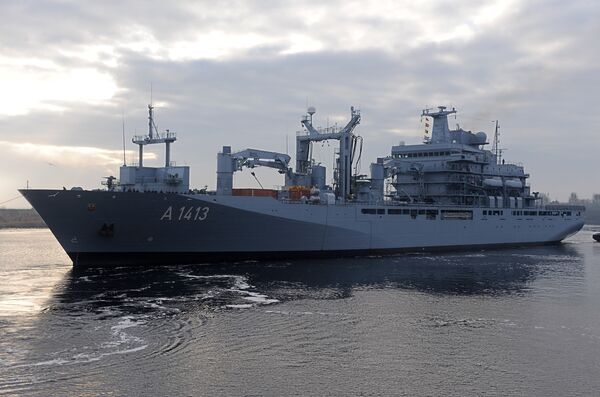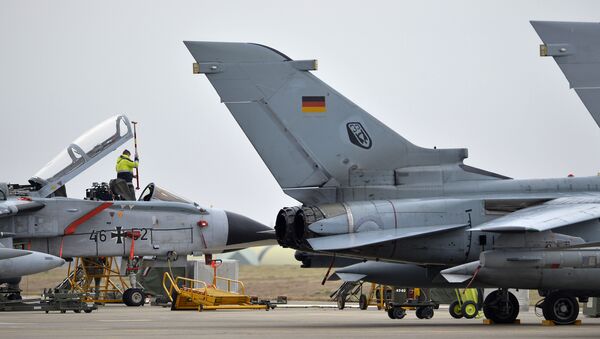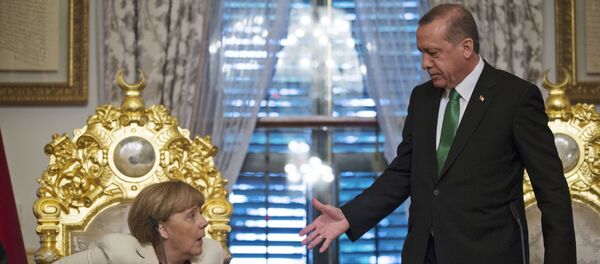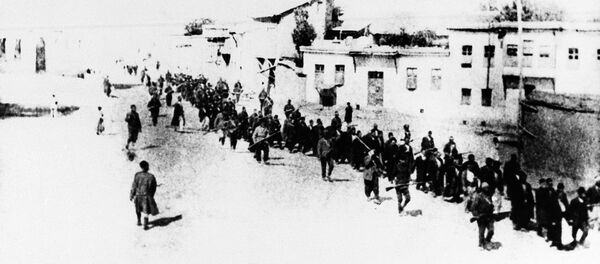According to the publication, the German Ministry of Defense fears that "out of anger" Ankara might hinder the implementation of joint projects, and in the worst case scenario, break off cooperation altogether.
Moreover, Spiegel Online noted, German Defense Minister Ursula von der Leyen had discussed Turkey's possible reaction to the resolution on the Ottoman genocide of the Armenians before the vote even took place.
And "although Ankara is a NATO member and a partner to Germany, the Turks, led by President Recep Tayyip Erdogan, are considered capricious and unpredictable," the resource added.
The German planes have been operating in Syria and Iraq out of the Turkish base for several months now, but formal negotiations on their deployment are still ongoing. Spiegel indicated that the negotiations have been slow, and the new diplomatic scuffle isn't likely to make the situation any easier.
Also under threat is the joint operation in the Aegean Sea to combat the illegal smuggling of refugees and migrants from Turkey to Greece. Berlin had earlier made a considerable effort to persuade Ankara on the necessity of this mission.
At the moment, several warships are patrolling, but only in a portion of the Aegean. And since it is Germany which formally heads the operation, negotiations on the mission's expansion might be even more problematic. In the worst case scenario, Spiegel noted, the operation could collapse entirely.

Ankara, meanwhile, has protested the resolution and recalled its Ambassador to Berlin. Erdogan warned that it would seriously affect Turkish-German relations, while Deputy Prime Minister Numan Kurtulmus called the decision a "historic mistake."



